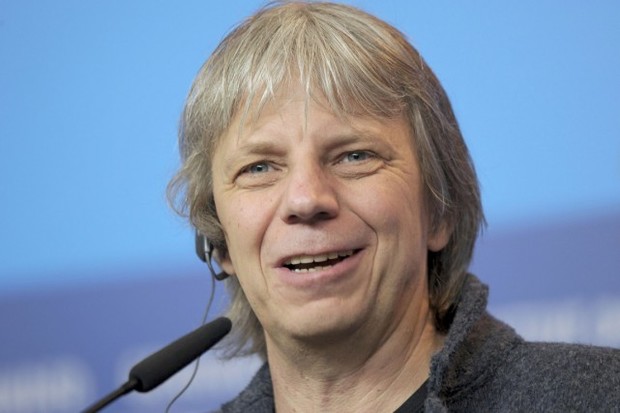Andreas Dresen • Director
“Wild, chaotic and anarchistic”
- BERLIN 2015: German filmmaker Andreas Dresen discusses As We Were Dreaming, which was screened in competition at Berlin

Joined by his young actors, novelist Clemens Meyer, screenwriter Wolfgang Koolhaase and producer Peter Rommel, German filmmaker Andreas Dresen told the international press about the origins of As We Were Dreaming [+see also:
film review
trailer
Q&A: Andreas Dresen
film profile], which was unveiled as a world premiere in competition at the 65th Berlinale and has had a mixed reception among the critics.
The novel that the film is based on is very rich and tackles myriad topics, including youth and the reunification of Germany. Was it difficult to adapt?
Andreas Dresen: The important thing was to understand what is at the heart of the novel, and then transpose that to a different medium. It’s a work that gripped me right from the start, as it is wild, chaotic and anarchistic, but also tender and affectionate at times. It was important to reproduce this spirit in the film, but also the spirit of that era. When I read the novel, I realised that it told a universal story because it deals with the question of growing up, of boys becoming men, of childhood dreams, of an entire kingdom of freedom stretching out before you, where everything seems possible, with boundaries that you can see but that you can break through: because this is the gift of youth, a very powerful will to take over the world. I didn’t want to deal with ideology, but rather study a generation that grew up between two worlds and that must find its place.
What about the violence that the film portrays?
Violence was a part of that era and that group of characters. The novel is also pretty violent. I didn’t want to make it aesthetically pleasing like it is in the Hollywood films and shout “cut” when things get nasty. It was needed in order to truly show the power of that violence, which is a reality all over the world, just like kindness and reconciliation are.
How did you approach the historical aspect?
The film is about a world that vanished over 20 years ago, so I wanted to capture that atmosphere as best I could. The idea wasn’t to make a historical film down to the last detail, but rather to seize the spirit of freedom and anarchy that pervaded that era. As you can see, the people in charge of the production design did some fantastic work. And we found some neighbourhoods in Leipzig where the architecture took us straight back to the 1990s, so we knew we could film there.
Surprisingly, the film has a very different style to your previous features.
When I read the novel, I empathised a great deal with the characters. They are not just barbaric and insolent individuals, as they take care of one another and there are many scenes in which they are not doing crazy stuff. Personally, I think it’s all in the film’s title, in the act of dreaming and trying to grow up, to evolve.
(Translated from French)
Did you enjoy reading this article? Please subscribe to our newsletter to receive more stories like this directly in your inbox.















